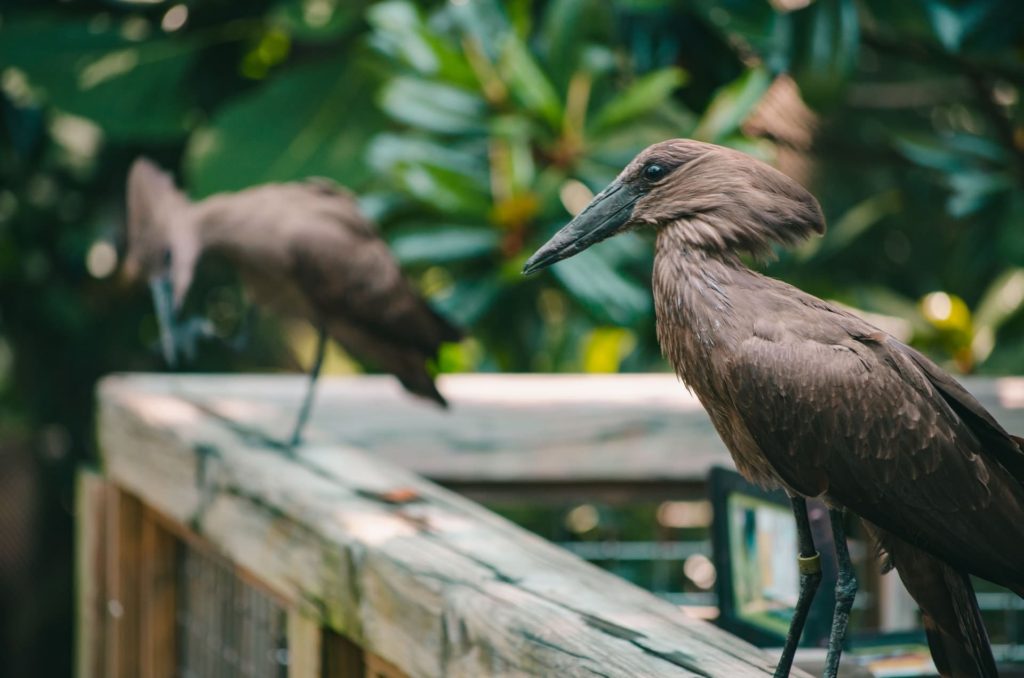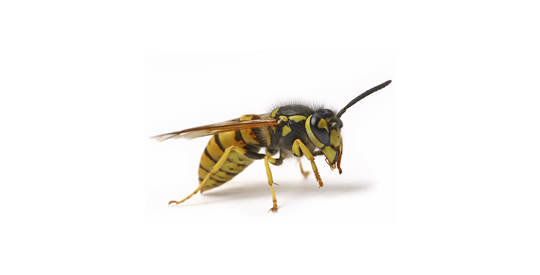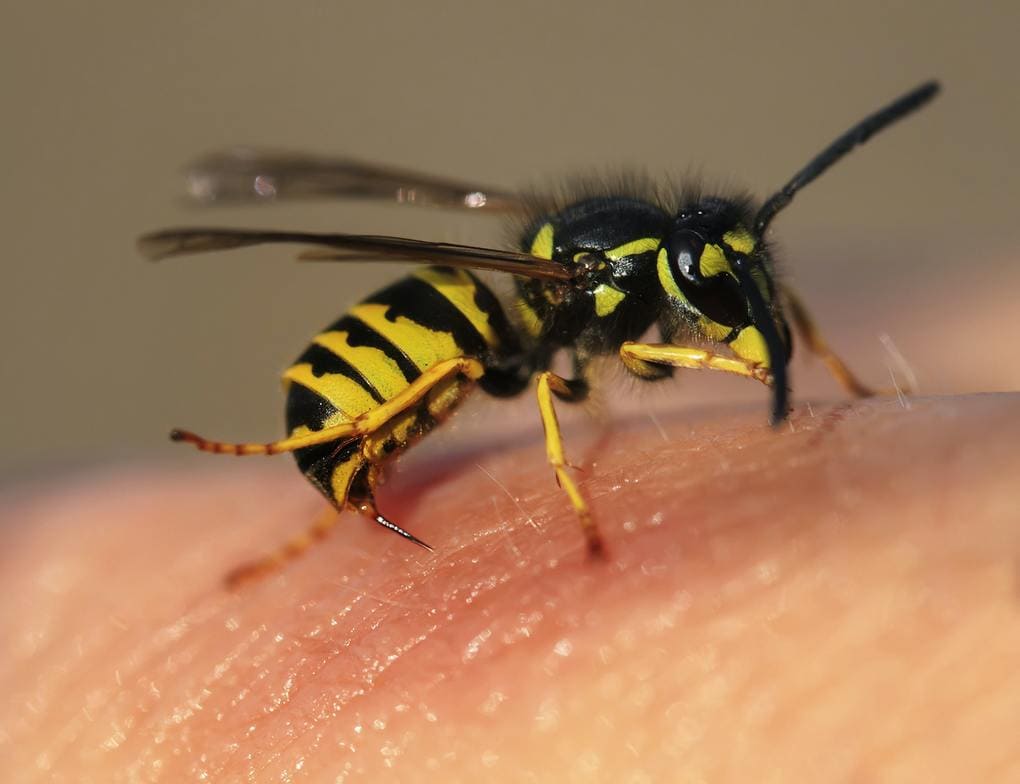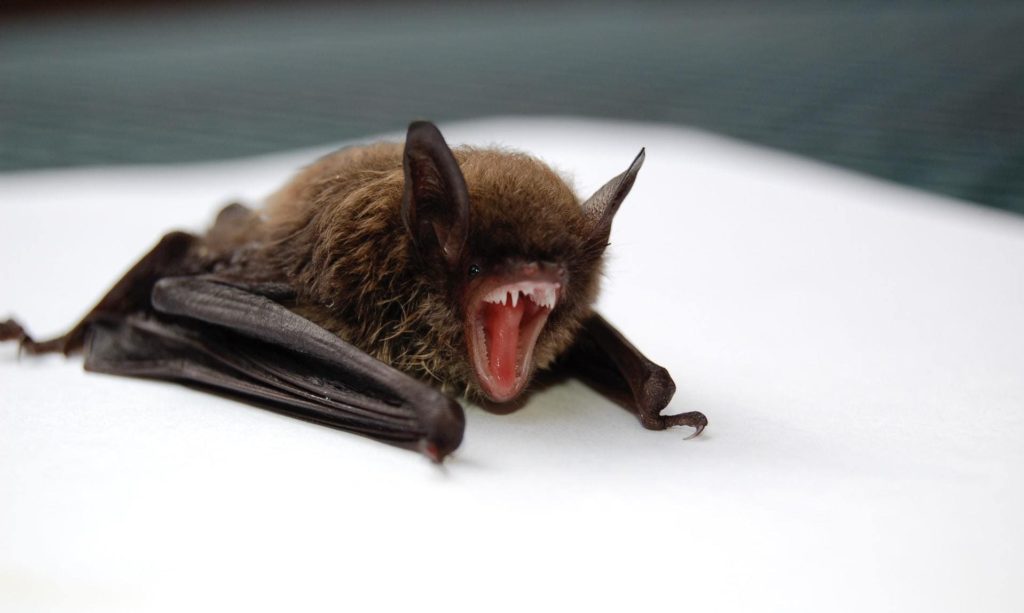Humane Squirrel Removal
Flies in my Home or Place of Business
Squirrels: Diseases, Preventions, and Cures
Preventing squirrels from spreading diseases requires exclusion of these animals from living environments. The only method of entry for some mites, flies, and other parasitic animals is by squirrels or other animals carrying them into the home, so if the squirrels can’t get in, neither can the other pests that they carry! If you already have a problem with squirrels and the contamination of your environment by excrement is severe, Forsyth Wildlife recommends the disinfection and/or removal of affected areas and insulation.
To cure diseases such as Leptospirosis and Salmonella, the aid of a doctor is required in many cases. Please consult a doctor if you have been exposed to severe infestations and or large amounts of excrement in a confined area.
Common Animal Damages and Repairs
Chewed Wires: As professionals we have seen animals chewing car wires inside the hood and cab of automobiles, electrical wires inside attics and walls, cables and internet wires, and entire home theater systems. The cost of the damages caused by animals can range from $100 to $500,000. As an example, one of Forsyth Wildlife’s customers bought a brand new car (T. Avalon); the second day rodents entered the vehicle and caused $7,500 worth of damage. The customer had to replace all the wiring inside the hood. This is just one of hundreds of customers that have faced similar situations. A house in Cumming, Georgia caught on fire and the fire marshal (fire investigator) ruled that the cause of the fire was a shortage cause by a chewed wire in the attic. This house burned to the ground, leaving a single mother homeless. This house was quoted by Forsyth Wildlife 8 months prior to the incident, but home owner never decided to hire professional services. She assured Forsyth Wildlife that her neighbor was trained and capable of solving the issue with rodents. Please hire a professional company when dealing with animals inside your attics and structures.
Chewed Pipes: As animals chew wires and cables, they also target pipes, as they have the round shape that is most attractive to wildlife. Rodents have chewed hoses and pipes connecting dishwashers and refrigerators which caused thousands of dollars to fix every time. Hundreds of our customer have faced devastating news when entering a flooded kitchen or bathroom. Even more aggravating is the fact that animals as small as a pinky are responsible for causing the damages. When kitchens are flooded, hardwood floors buckle, furniture gets moldy and many times a musky smell stays in the area for months. It is worth mentioning that even after all the damages are repaired, critters could come back and do it again. Please make sure that your house is sealed against animals by a trained professional.
Chewed Objects: From a $200 suit case to a $50,000 oil painting, Forsyth Wildlife has seen animals chew and destroy objects. Animals will chew objects trying to gather nesting materials, find a hiding place, or secure a food source. Many valuable objects are stored in areas with ideal conditions for wildlife such as attics and closets. These environments are frequently occupied by animals and rodents making it easy for them to chew and damage objects. In one case, rats chewed and damaged $ 20,000 worth of children’s clothing and toys since they were in storage for a period of three months. Some of the damaged materials included bedding, clothes, plastic bottles, diapers, cribs, camera monitors, and many more. Insurance was very difficult to collect and only paid about 45% of all damages.
Damaged Insulation: Many homes that have been infested by bats and raccoons have an undisputable need to remove and replace contaminated insulations since their excrement can be very toxic to humans. Most insurance policies in the state of Georgia will pay for the removal and replacement of contaminated insulation if raccoons or bats contaminated the insulation. In the case of squirrels and rats, replacement of insulation and decontamination may be needed if the infestation is heavy. Unfortunately, insurance doesn’t cover this since they expect owners to solve rat and squirrel problems as soon as they notice any signs. Rats and squirrels could damage insulation to the point of no return, but it definitely takes them longer to do so, compared to raccoons and bats.
Water Damage: Chewed pipes are not the only cause of water damage caused by animals. In thousands of homes animals will open entry areas around the outside soffit boards or roofs. These entry ways will allow water to enter structures by the gallons, creating mold and damages that can cost thousands of dollars to repair. When dealing with large animals such as squirrels and raccoons, their entry ways could be from the size of a baseball to a beach ball. If you have openings this size around the roof of your structure, water will cause more damage than any wildlife. We urge you to repair openings and animal entries before is too late. Make sure animals are captured and relocated before they try to open entry ways elsewhere.
Bird Control Techniques
Birds are a pest when invading buildings and structures. When they become pests, it is clear that Forsyth Wildlife needs to address the problem to prevent further damage and contamination in the future. Solving problems with pesky birds such as pigeons, woodpeckers, starlings and crows is not an easy task: Experience, equipment, and support are important tools in the process of bird eradication.
Problems with Birds:
You may have seen the mess they make and of course they can also damage your property.
Pest Birds could be a very serious issue thus requiring serious solutions and effective methods to control. These pests will contaminate roosting sites and areas around them. Their excrements will generate a number of lung diseases and they may bring other pests with them such as fleas, mites, and mosquitoes.
- Deface buildings and vehicles with their droppings. Foul entrances and pavements, making them dangerously slippery.
- Encourage insect infestations. For example bird mites, fleas or mosquitoes because they are attracted to their nests and roosting sites.
- Attack people, especially during the breeding season when they are defending their young.
- Be a health hazard, by spreading diseases such as Ornithosis, E.Coli and Salmonella.
Problems with Birds in your Business?
If you find birds in the wrong location, in particular pigeons, they can become a real nuisance for your business.
They may:
- Dislodge roof tiles
- Block gutters or
- Drive away your customers affecting your reputation
Techniques
At Forsyth Wildlife we will inspect and choose a bird control method that is the best suited for your needs. We know it can be difficult to solve the problem with just one technique, so if that is the case, we will try a combination of methods to find one bird control method that completely solves the problem. It often takes a combination of methods to control the issue.
Some of the more common methods are: exclusion, electrocution, sterilization, and trapping. Please call Forsyth Wildlife for more information on this subject.
You will also find different kinds of birds and they carry a number of diseases. If this is your case, it is best to call the experts at Forsyth Wildlife and avoid handling the problem yourself.
We will give you a free consultation for your unique situation based on our years of experience.
When Your Efforts are Not Enough
Sometimes these pests could bypass all efforts. Forsyth Wildlife offers a warranty on all services, so in the case of a pest bird reoccurrence, our company will stand behind the previously protected area (according to contract).
We focus on prevention so contact our experts in case you are not sure about the measures you need to take. We of course, help with eradication if given the case.
Bees in Georgia
Bee, Wasp, and Hornet Control Techniques:
After years of experience, Forsyth Wildlife has developed safe techniques used on a daily basis in controlling flying insects. Some of the techniques include the use of powder sprayers, wasp freeze, bee suits, bags, cutting tools, and heavy duty equipment. When dealing with one nest, multiple nests, or a sensitive area, Forsyth Wildlife has an appropriate solution that is safe for everyone and will allow the affected parties to continue on with their life as usual.
Bee Management and Removal
For the past 30 years, Forsyth Wildlife has encountered and solved thousands of problems with bees, wasps, and hornets. Forsyth Wildlife Recommends the use of a professional bee, wasp, and hornet removal company since these insects could cause serious physical harm.
Insect Stings
This is one of the most uncomfortable problems bees can carry. They can cause you stress especially if you or anyone in your family are allergic to bee or wasp stings. You can reduce the risk of being stung by calling Forsyth Wildlife to get rid of a bee nest in or near your home. We will assist you and give you ideas on how to deal with these animals when being outdoors.
Do I Have A Problem with Bees?
Whenever you see a bee nest in your property, you may have an infestation. You may also see bees entering a hole in the ground or in a wall or roof. This is time to call our Forsyth Wildlife professionals in their removal. We will help you identify the best solution: Depending on the species.
We will tell you if it is necessary to destroy the nest or not.
Some Species we Deal With:
- European Hornets
- Yellow Jackets
- Baldface Hornets
- Honey Bees
- Carpenter Bees
- Cicada Killers
- Red Wasps
- Bumble Bees
- Yellow Jacket Wasps
- Solitary wasps
Why Forsyth Wildlife
We have all the required experience and personal protective equipment needed to complete any bee job in a timely and professional manner. Whether the bee, wasp, or hornet nests are under ground, or 100 foot above it, our professionals have dealt with them in the past and are confident in even the most dangerous situations.
Best Treatment for Bees and Wasps
As for other species, treating the bee nest can be the only solution. You Forsyth Expert will assess your unique situation and tell you what kind of bees you have. We know that bees can be less aggressive than wasps. They will sting if they find themselves in a threatening situation.
Preparation
- We do not block the nest until after the treatment, this can be dangerous.
- Keep pets away from the area and close windows nearby.
- Bee activity around the entrance of the nest will increase for the first 24 hours, so people and pets should be kept away from the area until activity ceases.
We Use the Best Products
- Biodegradable
- Almost odorless
- They do not corrode or stain.
- They are not highly toxic for mammals but very effective for crawling and flying pests.
What to Do After a Forsyth Treatment?
- After treatment, bees and hornets can remain in a hyperactive state for a few hours.
- Their activity will end within 7 warm days.
- If you have cold or wet days, this may take longer.
Bats in Georgia
House Bats
The little brown bat and the big brown bat are often referred to as “house bats”. They can typically be found in buildings or even in your house in certain times of the year.These are the two most commonly found bats inhabiting human environments.Both species of bats feed primarily over wetlands and other bodies of still water where insects are abundant. Due to the favorable and moist climate conditions of Georgia, bats roost in buildings and structures.
Sometimes, big brown bats can be found hibernating in attics or basements in the winter season. And when you find both species at the same time, you can recognize them based on their size. Here are some characteristics so you can see the difference.
Little Brown Bat
• They can even be the size of a typical grain of uncooked rice, and you can find bigger ones too.
• These adult bats can be 2.5 to 4 inches long. This is, from nose to tail, about the size of an adult’s thumb.
• Their wing membranes are dark brown.
• Fur is dark brown and glossy on the back. Underneath, they are slightly paler and grayish.
Big Brown Bat
• They are larger in size about 4 to 5 inches in body length.
• Their fur has a silky look, and is typically chocolate brown in color.
• Their wing membranes, ears, feet and face are dark brown to blackish.
Signs of Bat Infestation:
If you see bats enter or leave your attic vents, you may have a bat at home. They move at or just after dusk.
If you hear scratching or squeaking sounds, especially at night.
Sound coming from your walls or attic.
Do you see droppings around your attic vents?
Have you noticed these signs? Maybe in your home or business? It is time to call professionals so call us and we recommend you not to attempt to evict the bats on your own.
When you are ready to evict these bats in a human way, call us.













